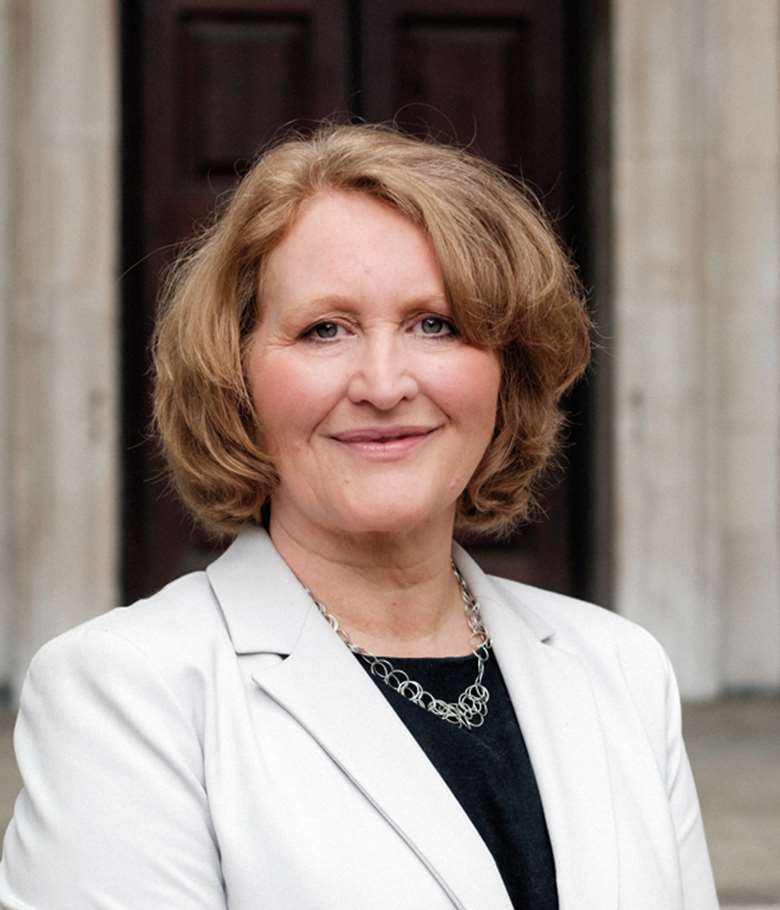Leadership: Children in care councils
Anne Longfield
Tuesday, September 27, 2016
Looked-after children are experts when it comes to the care system, so it makes sense for corporate parents to better understand their needs by consulting with them through children in care councils.

Children in care can play a vital role in evaluating and improving the experience of others in their local area and more widely across the country - if they are empowered and properly listened to by local authorities and decision makers.
Talking and listening to children and involving them in decision making builds self-esteem and confidence and ultimately leads to better decisions and fewer mistakes being made.
Many children who tell me about the often traumatic circumstances that led to them coming into care and their experience of being cared for have positive things to say. For some, it is the first time they had stability in their lives.
But it is clear not all corporate parents effectively build the golden rule of "no decision about me without me" into the relationship they have with their looked-after children. All too often children tell me they feel "done to" rather than "involved in" the care they receive. They can feel misunderstood and unheard when important decisions are made or support and care provided. Young people who call Help at Hand, the children's commissioner for England's advice and support line, also consistently say they haven't been listened to, consulted, or provided with an advocate when one was needed.
It doesn't have to be this way. The best children's homes foster a culture of listening and actively encourage the involvement of children in everything from the setting's policies to the colour of their bedroom or what to have for dinner, and the best local authorities do the same through active, supported and promoted children in care councils.
As looked-after children experience what it is like to be in care every day, they are experts on the care system. They understand what needs to be worked on and, given the right opportunities from leaders and decision makers, are more than capable of solving many of the challenges faced by local authorities.
This year, I am supporting and championing children in care councils and encouraging local authorities to do the same. Many are under-resourced, under-supported and neglected but the best ones are active and well-attended, embedded in governance and decision-making processes and play an essential part in bridging the gap between local authorities and their looked-after children.
Transforming policy
I've seen many examples of children developing and implementing initiatives that have had a real impact on the experiences of those in care, enhancing local authority services and transforming policy.
These include mentoring schemes, games to help primary school-aged children settle into foster care, or Oldham's "passport to independence" pack for care leavers, promoting the support available.
Young people from Ealing's children in care council recently showcased their "memory folder" at an event I organised in Westminster. This records significant moments in the lives of children in care through photos, souvenirs, drawings and comments after the council discovered many children lose key things or documents that are important to them. Other children in care councils have prompted a review of whether care leavers should receive council tax exemptions, to help to reduce financial barriers to education or employment. In other instances they've helped create guidance for teachers on personal education plans and a personal specification for the recruitment of foster carers.
There are huge positives for the young people involved. They gain confidence, understanding their opinions matter and they can voice these. They meet peers who have been through the same thing, which can be particularly important and empowering for children who feel isolated.
Any child in care, regardless of their age, disability or needs, who wants to have their voice heard by these forums, should be able to do so. Some might assume younger children cannot be consulted in meaningful ways but this is possible by using creative methods and finding different ways to frame involvement or questions. By promoting the council widely to children in care, through social workers and other professionals and partnering with other organisations - including charities providing services - a diverse range of members can be recruited and any obstacles overcome.
There's a lot of difference between just having a children in care council and fostering one that is at the heart of local authority processes and which can influence practice, policy and effect change. From my visits it is clear children in care councils with the greatest influence have the close support and involvement of both the director of children's services and the relevant lead member. Support staff and senior management need to show a strong and continued commitment, actively promoting and championing the council as accessible, inclusive and impactful.
By actively assisting young people to shape how they are loved and cared for you can help us bring about lasting change.
TOP TIPS
- Make sure children in care councils are well-supported and resourced
- Corporate parents should be involved with their children in care council. Children in care councils should have direct links to the director of children's services and lead member
- Actively promote your children in care council so every child in care is aware of it and knows how to get involved
- Set up your children in care council so younger children can get involved as well as teenagers
- Children in care council leads should meet up, network and share good practice with other children in care councils locally and regionally




